Part Analysis
| General Data | |
| Manufacturer (OEM) | Sohoo |
| PCB Type | Double-Sided |
| Primary Side | |
| Transient Filter | 4x Y caps, 3x X caps, 1x CM chokes, 1x MOV |
| Inrush Protection | NTC Thermistor NTC5D-20 (5Ohm) & Relay |
| Bridge Rectifier(s) |
2x
|
| APFC MOSFETs |
3x Sanrise Tech SRC60R090B (600V, 17.8A @ 125°C, Rds(on): 0.009Ohm)
|
| APFC Boost Diode |
2x GPT G3S06506D (650V, 15.3A @ 100°C)
|
| Bulk Cap(s) |
1x Nichicon (400V, 1000uF, 2000h @ 105°C, GG(M))
|
| Main Switchers |
2x Sanrise Tech SRC60R068BS (600V, 21.5A @ 125°C, Rds(on): 68mOhm)
|
| APFC Controller |
Infineon ICE2PCS01
|
| Resonant Controller | MPS HR1213 |
| Topology |
Primary side: APFC, Half-Bridge & LLC converter
Secondary side: Synchronous Rectification & DC-DC converters |
| Secondary Side | |
| +12V MOSFETs | 8x ZMJ ZMS008N04NC (40V, 195A @ 100°C, Rds(on): 0.91mOhm) |
| 5V & 3.3V | DC-DC Converters: 4x AII Power AP180N03G (30V, 115A @ 100°C, Rds(on): 2.1mOhm) PWM Controller(s): Micro uP3861P |
| Filtering Capacitors | Electrolytic: 2x Teapo (3-3,000 @ 105°C, SC), 3x Teapo (3-6,000 @ 105°C, SY) Polymer: 21x Teapo |
| IC Driver | MPS MP6924B |
| Supervisor IC | Grenergy GR8313 (OVP, UVP, PG) |
| Fan Model | no info |
| 5VSB Circuit | |
| Rectifier |
ER2EL60CS
|
| Standby PWM Controller | PN8141 |
My sample uses a high-quality Japanese bulk cap, while on the secondary side, it uses Teapo caps, considered a decent choice. I am not a big fan of Teapo SC caps, but most of the filtering caps on the secondary side are polymer ones, which are tolerant to high operating temperatures. The FETs on the primary and secondary sides are from less-known brands. I would prefer to see Infineon here, but this would tremendously impact production costs. Moreover, no information about the unit’s fan is available since its label only shows a logo and nothing else. Gamemax speaks of an FDB fan, but I cannot be sure without taking it completely apart to check the bearing, which is impossible now because I don’t have the review samples anymore.
The soldering quality is mediocre to bad, probably because I had an early sample. It can be better now in the newer production batches, but I cannot be sure if I don’t get some and check them. The design looks good, though, and the PCB has ample space for good airflow. I like the lack of cables, and the small heatsinks with the perforations also look nice, but I am not sure how effective they are. The main transformer’s top side is misaligned, showing a rush in the assembly of this sample.
Regarding the design, on the primary side, besides the APFC converter, two FETs, arranged in a half-bridge topology, chop the incoming signal to feed the main transformer, which provides power to the secondary side. An LLC resonant converter is also used to minimize switching losses. Eight FETs handle the 12V rail on the secondary side, and two DC-DC converters generate the minor rails.

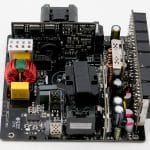
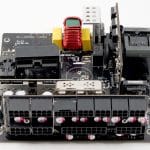
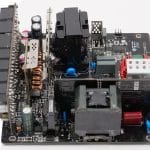
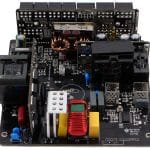
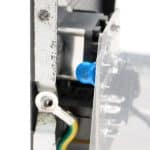
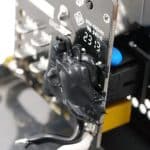
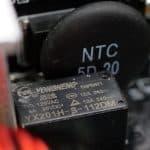
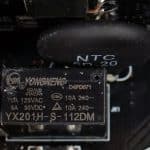
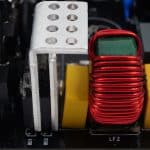
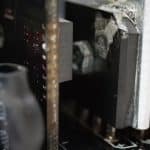
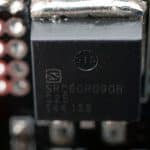
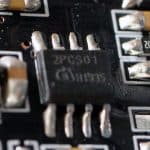
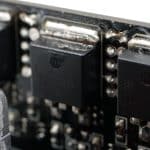
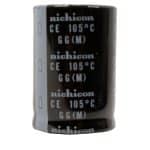
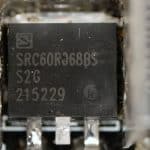
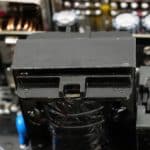
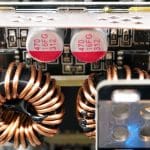
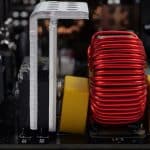
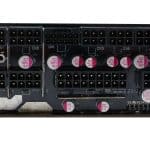
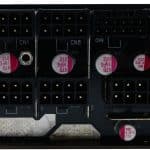
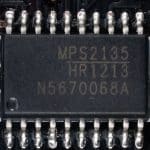
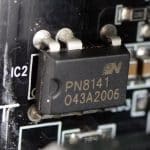
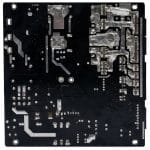
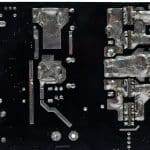
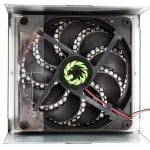
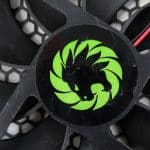
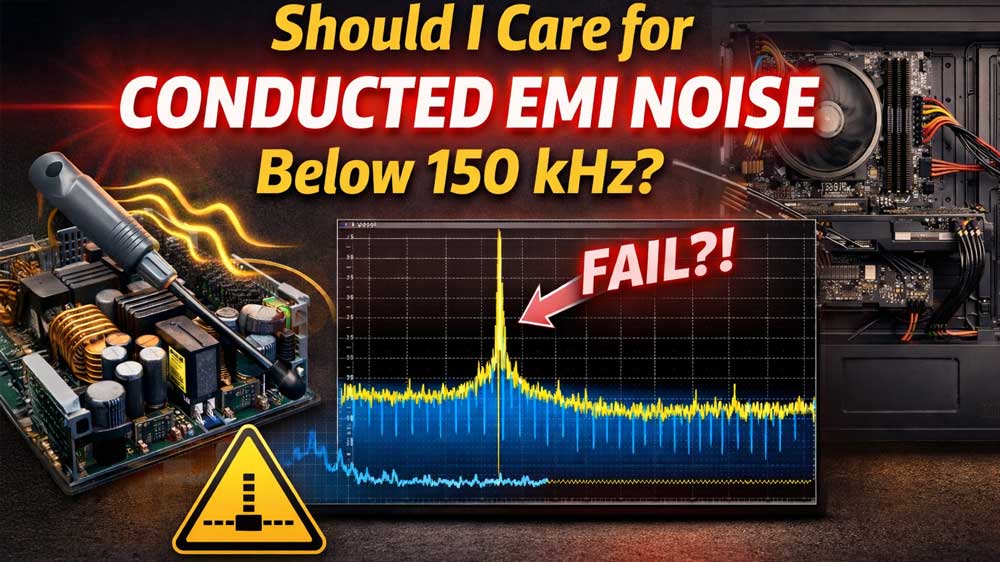
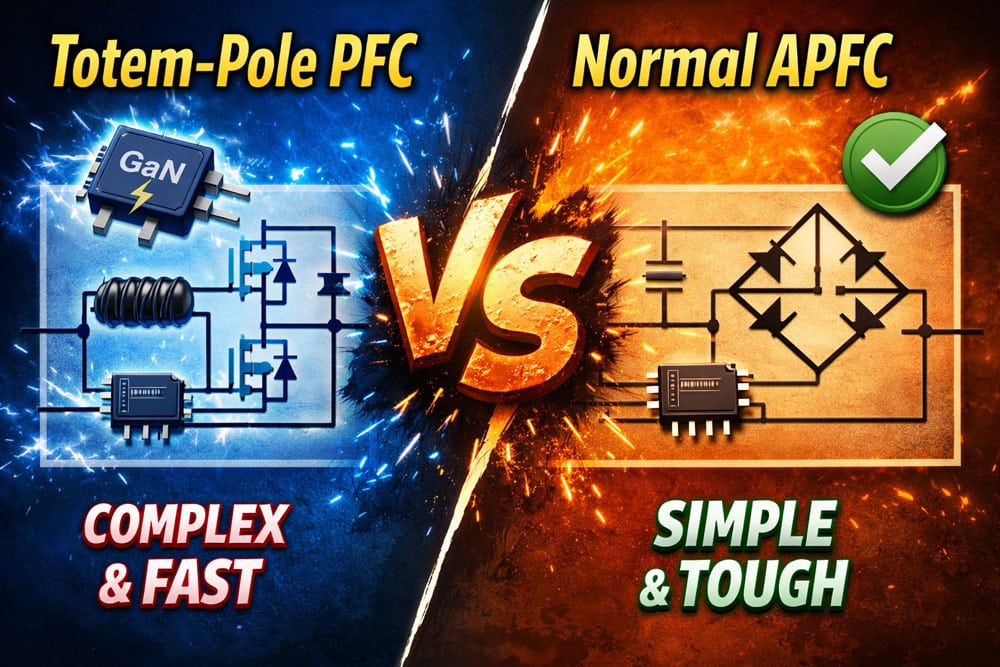
It woulb be nice if you can review the top of the line version, their 1300W. At 149$ USD and with the look … many jump on it too with 6,862 review 4.5 Stars.
OEM not is jiu Meng,It should guangdong sohoo Technology
I know it is Jiu Meng, since I got it from them, the sample.
I should point out that Gamemax has done promotions in the past where they would offer gift cards in exchange for five-star reviews on Amazon, which dampens their credibility somewhat. Also, given that Jiu Meng is the manufacturer behind Aresgame, if this is a sample from the company and not a unit you bought yourself I am doubtful that what a consumer would get would be the same as what is shown here. Regardless, it’s good to see that they are at least capable of making a good PSU. Thanks for the review as always!
That is a very lame way to get 5-star reviews!!
We need more pictures of TOM.